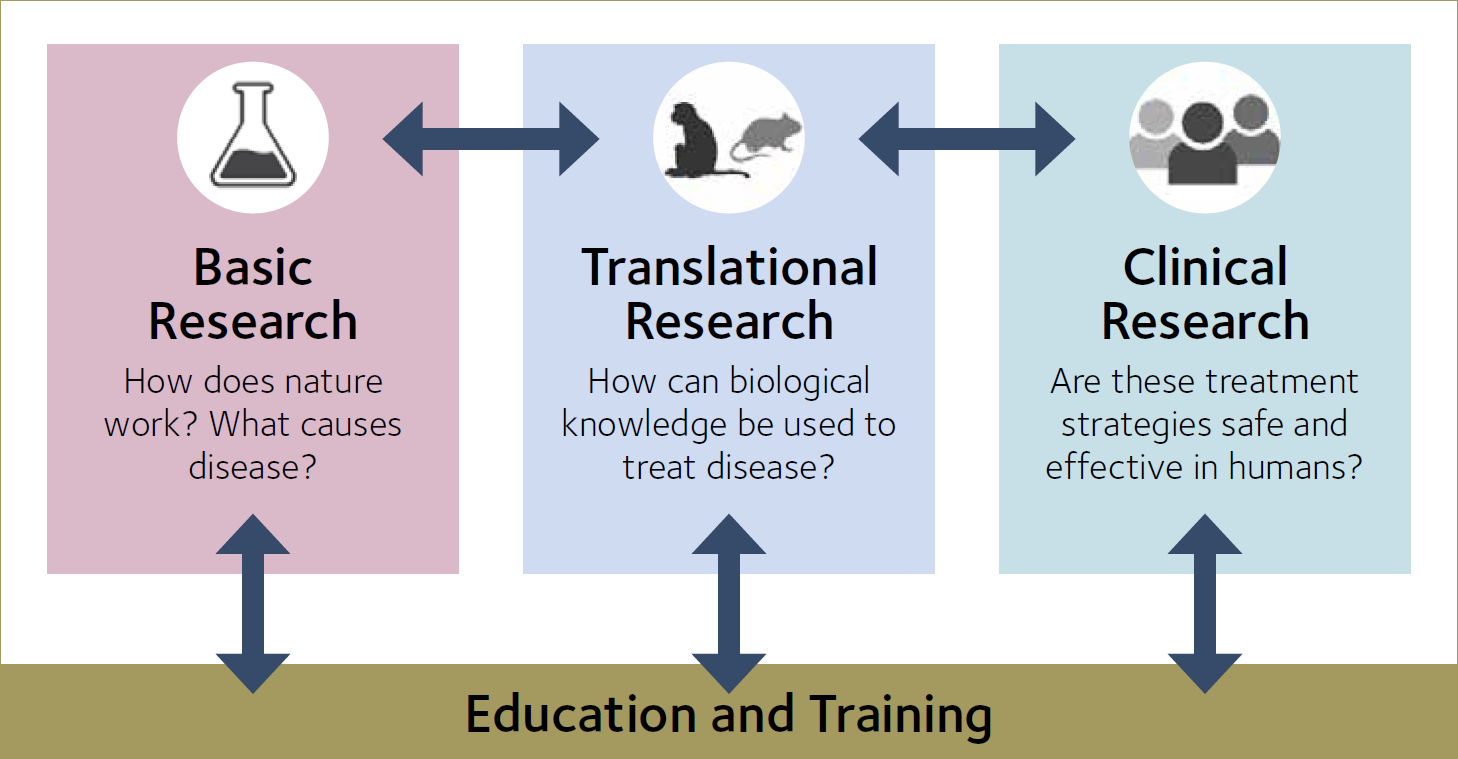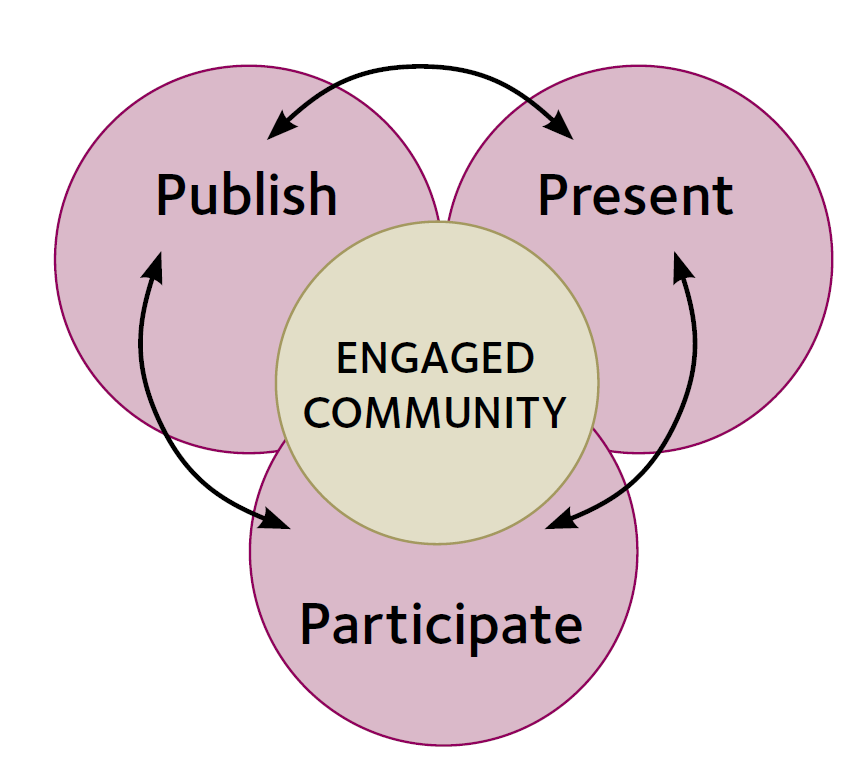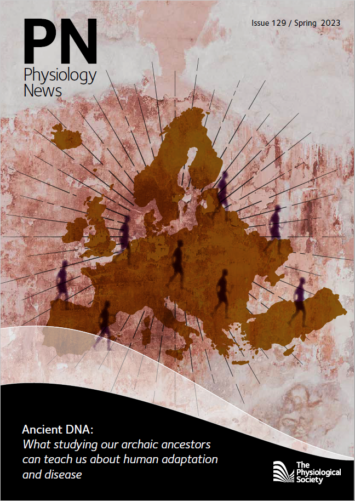
Physiology News Magazine
Building and strengthening our community
Chief Executive’s View
Introduction
Building and strengthening our community
Chief Executive’s View
Introduction

Dariel Burdass
Chief Executive, The Physiological Society
As David reflects in his President’s View, this is a challenging time for The Society. We face financial pressures from a decrease in our publishing operations’ income coupled with declining membership numbers. As I reported at the 2022 Member Forum, this fall in income has necessitated some difficult decisions to reduce expenditure across all our activities and operations so that we can move to 2024 with a balanced budget.
Over the last two years The Society has organised regional Roadshows focused on re-engaging with physiologists within their institutions. We will build on this foundation as we deliver the new 2023-27
strategy vision to support and inspire our community to advance the physiological sciences, enabling a world in which physiological discovery leads to healthier lives.
We are now in a stronger position to build our community and grow our broad church of physiologists.
Our members are active in a wide range of areas of Physiology from basic research through to translational and clinical, underpinned by education and training.
Several years ago, Sir James Black1 was asked, “What is the biggest challenge in biology today?” His response was, “The triumph of physiology over molecular biology.” The Human Genome Project will give us a book but learning to read it and understand what all its entries signify is the challenge of a lifetime, possibly several lifetimes. Thus, organismal physiology is the biggest challenge ahead in both basic and clinical research. The problem is who will accomplish this task, and why, given today’s incredible opportunities, are we having such a difficult time bridging basic science with medicine?

The Society is well placed to bridge the gap between advances in basic science, translation research and their application to medicine – allowing for bidirectional dialogue by providing clinicians and physiologists with a platform to learn, connect, and inspire.
One example of this is the success of Questions from the Frontline, which brought together a COVID-19 Advisory Panel to provide an evolving understanding of the physiological and pathophysiological mechanisms underpinning this disease in response to questions received from frontline clinicians. The Society recognised the need for a hub to enable effective communication and collaboration between the research active clinical workforce and both basic and translational scientists. An outcome of this is that The Society will be launching a Clinically Focused Theme at our main meeting at Harrogate in July.
The Society pledges to strengthen and increase the visibility of the discipline by growing its numbers and providing greater networking opportunities. But we can’t do this without your help. There are a number of ways that you can engage with The Society and help shape the future of physiology through the 3 Ps – Present, Publish and Participate.
Shaping future physiology & connecting our community

Here are some examples of ways you can Present, Publish and Participate at The Society, whether in person or virtually:
Present
We organise an extensive range of events, including scientific conferences, training events, interactive workshops and webinars, for example, our new two-day scientific meetings, annual main meeting and sandpit meetings. Whether giving an oral presentation or a poster presentation, these events provide the opportunity for physiologists to communicate their research, get feedback on their data, raise their visibility, network with other researchers, and develop their academic track record. To find out more about information on how to communicate your research, view our professional development resources.
Publish
Our three journals lead the discipline, promoting best practice and pushing the boundaries of scientific endeavour.
The Journal of Physiology is the leading general research journal in the discipline, with the highest number of citations of any physiology journal. Since 1878 it has published research that significantly advanced our knowledge of physiology and increased our understanding of how the body functions in health and disease.
Experimental Physiology is an open access journal publishing research papers that report novel insights into homeostatic and adaptive responses in health, as well as those furthering our understanding of pathophysiological mechanisms in disease. Research embracing the journal’s orientation of translation and integration is encouraged.
Physiological Reports is a collaboration between The Physiological Society and the American Physiological Society. This is an open access journal, which publishes original research in all areas of basic, translational and clinical physiology and allied disciplines.
When looking to submit your next manuscript for publication please can I ask that you support your scientific society by considering our highly respected journals, which provide a home for physiology research. In addition, your help reading and citing relevant papers from our journals is most appreciated. Check out our YouTube Channel where we have a series of resources focused on Publishing for Beginners. By publishing with a Society journal, you support our community of physiologists, advance physiology and increase the influence of The Society with the public, policymakers, and other stakeholders.
Participate
The Society provides many opportunities to enable you to get involved with your community, which is a fantastic way to gain new skills, or use existing ones, and to build your network.
Volunteering opportunities include:
- Serving on our committees and working groups, which help deliver our activities
- Session organisers, chairs, and volunteers at our events
- Theme Leads and Society Reps
- Grant reviewers
- Contributing to our policy reports
- Sharing your research through our various communication channels including Physiology News and the blog
I am looking forward to talking to many of you at Physiology 2023 in Harrogate and through other activities that we have planned during the coming months, to understand and improve what The Society can do for you to strengthen our community.
Footnotes
- Bridging the Bed-Bench Gap – National Academies of Sciences Engineering and Medicine Contributions of the Markey Trust Appendix A Bridge Building Between Medicine and Basic Science Irwin M. Arias, M.D. Department of Physiology Tufts University School of Medicine https://nap.nationalacademies.org/catalog/10920/bridging-the-bed-bench-gapcontributions-of-the-markey-trust
